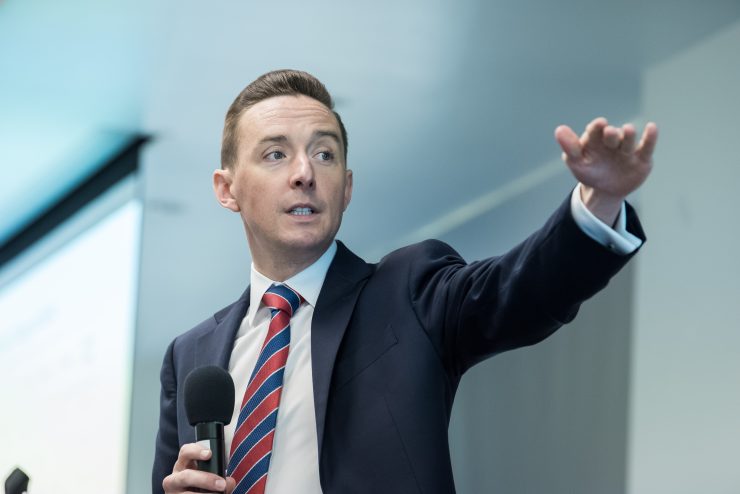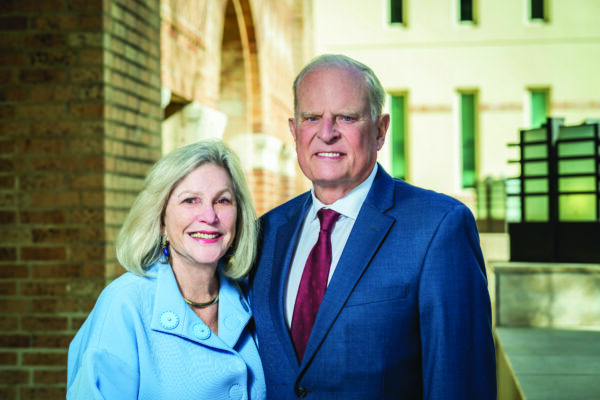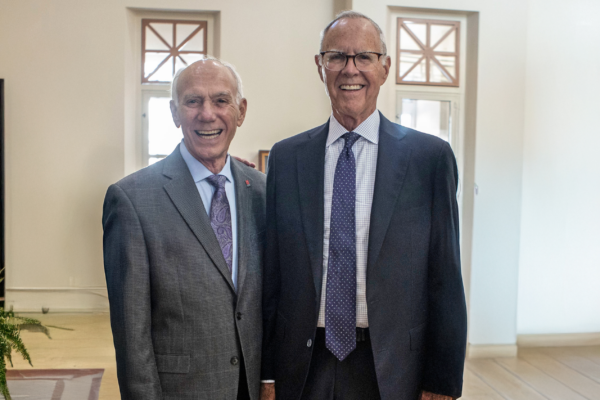Federal Reserve policy experts converged at Chapman University on the heels of a year of constantly rising interest rates, inflation and an economy that has yet to yield to recession predictions.
Chapman’s Argyros School of Business and Economics hosted the annual Shadow Open Market Committee Conference, which brings economists from academia and private organizations together to discuss Fed policies. Professor Marc Weidenmier brought the conference to Chapman in 2018, and it has since drawn prominent current and former Fed officials.
This year’s theme was “Tight Money, Persistent Inflation, and a Credit Crunch: The Fed’s Dilemma.”
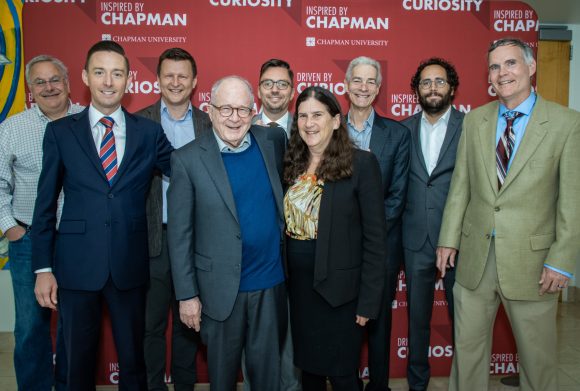
Argyros Dean Henrik Cronqvist kicked off the conference noting that the Shadow Open Market Committee was formed 50 years ago to offer alternative opinions on monetary policy.
“Although 50 years have gone by, I feel it’s fair to say that some of the most important topics in the economy related to interest rates, monetary policy, inflation, economic growth, the relevance about a debate on those topics has never been more relevant,” he said.
Keynote speaker Tyler Goodspeed talked about the U.S. labor market, starting in the 1950s. Following an “unprecedentedly inefficient” 2020-2021 labor market, the most current data suggests “a very tight labor market with a lot of job openings and low unemployment,” said Goodspeed, who chaired the president’s Council of Economic Advisers in 2020-2021.
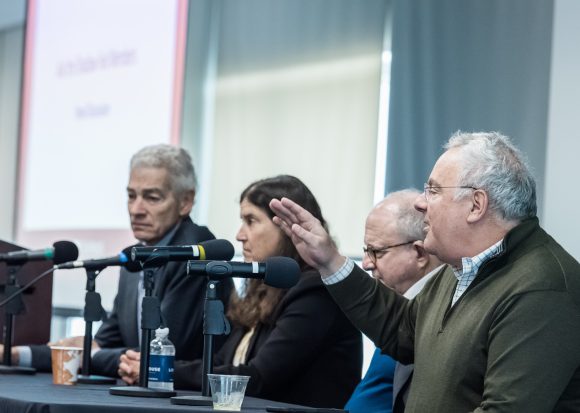
“We’ve just not been in this territory before in terms of open jobs, and very rarely have we been in this situation in terms of unemployment rate,” he said.
Goodspeed, now a fellow at Stanford University’s Hoover Institution, gave his take on recession risk, going back to 1949.
“I think a lesson from history is that it takes a lot to push a big, diversified economy like that in the United States into a period of outright contraction with broad-based output losses and with employment losses,” he said.
“And on both the inflation front and the recession front I guess I’ve been consistently reminded of the wisdom of a pretty wise chap named Isaac Newton – namely that an object in motion stays in motion unless acted upon by an external force.”
When asked what the chances of a recession are, Goodspeed said that because next year is an election year, policymakers “are going to be very reluctant to risk a recession heading into 2024.”
He settled on a 33% chance, nodding to a running joke by Chapman President Emeritus Jim Doti that many economists estimate a 40% chance of inflation.
The conference began with a Q-and-A with four committee members. Later, they and other economists presented on tightening and forecasting at the Fed, quantitative easing and credit policy. Panelists and presenters included MIT’s Deborah Lucas, Rutgers’ Michael Bordo and Dartmouth’s Andrew Levin, along with faculty from UC Irvine and UCLA.
“We have really enjoyed meeting here and I actually want to put in a good word for our audience, because I think we get the best SOMC discussion with everyone here at Chapman,” Lucas said.
The entire conference can be viewed here.
